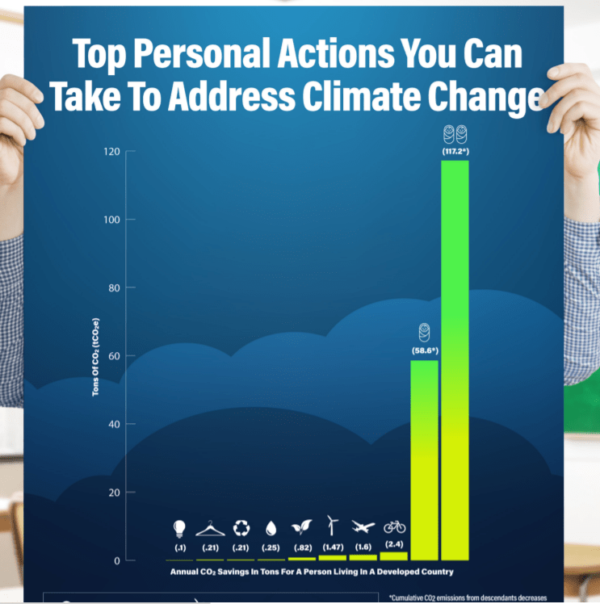The looming specter of climate change represents not only an environmental dilemma but also a profound moral challenge that calls upon the collective conscience of humanity. Within the Bahá’í teachings, a guiding framework emerges that implores individuals to recognize their interdependence, cultivate a spirit of service, and change their actions to mitigate the negative repercussions of climate change. By following these principles, one can adopt a proactive approach to preserving the environment while simultaneously enriching their spiritual lives.
The Bahá’í perspective posits that humanity is one family—a single, interconnected entity. This notion fosters a sense of responsibility toward one another, not unlike the responsibility we hold toward our shared planet. The delicate balance of ecosystems, the preservation of natural resources, and the well-being of future generations underscore the urgency of collective action against climate change. Thus, personal efforts aimed at sustainability are not just self-serving; they serve the greater good.
To succinctly delineate actionable steps individuals can take, the following guidelines offer a comprehensive approach to integrating Bahá’í principles with personal responsibility in the fight against climate change:
1. Embrace Conscious Consumption
The Bahá’í teachings advocate for moderation and mindful consumption. Transitioning to a sustainable lifestyle begins with evaluating one’s purchasing habits. Consider the following:
- Opt for products that prioritize sustainability—those made from recycled materials, ethically sourced, or produced with minimal environmental impact.
- Minimize single-use plastics by opting for reusable alternatives. For example, use cloth bags, stainless steel containers, and glass bottles.
- Support local businesses and farmers, which not only reduces carbon emissions associated with transportation but also strengthens community bonds.
2. Reduce Waste
Waste reduction is pivotal in addressing climate change. The teachings of the Bahá’í Faith reveal that sustainability is inherently linked to our ability to shun excessiveness:
- Adopt a zero-waste mindset by composting organic materials, recycling whenever possible, and repairing items before discarding them.
- Participate in community initiatives aimed at reducing waste, such as workshops that focus on repurposing and upcycling.
- Educate family and friends on the importance of minimizing waste. Collective awareness can amplify impact.
3. Advocate for Collective Action
As individuals, advocating for collective solutions and policies is fundamental to enacting substantial change. The Bahá’í teachings emphasize that individual efforts coalesce into a powerful force when harmonized:
- Engage in dialogue about climate action within your community. This can be through organizing local discussions or participating in public forums.
- Support policies or initiatives that promote renewable energy sources, such as solar and wind power, and hold corporations accountable for their environmental footprints.
- Collaborate with organizations that align with Bahá’í principles and work towards environmental restoration and advocacy.
4. Foster Environmental Stewardship
The Bahá’í Faith elucidates the importance of stewardship—the careful and responsible management of resources. By adopting stewardship-oriented practices, individuals can nurture the environment:
- Participate in tree planting initiatives or community gardens to combat urban sprawl and enhance biodiversity.
- Practice water conservation through simple actions, such as fixing leaks and utilizing water-saving fixtures.
- Engage in regular outdoor activities that promote an appreciation for nature, which can galvanize a deeper commitment to environmental causes.
5. Cultivate a Spiritual Perspective
Integrating spiritual principles into one’s relationship with the environment nurtures a profound sense of purpose. The Bahá’í teachings encourage individuals to seek a deeper understanding of their role in God’s creation:
- Reflect on the interconnectedness of all life. Regular meditative practices can foster a more profound connection with nature.
- Incorporate prayers and readings that emphasize the sanctity of the Earth into personal and communal gatherings.
- Encourage gratitude for the resources that nature provides, fostering a deeper respect and care for the planet.
6. Educate and Empower Others
Knowledge is a catalyst for change. The Bahá’í teachings underscore the transformative power of education. By sharing insights and fostering awareness, individuals can lighthouse the path to collective action:
- Organize educational workshops and discussions that focus on the implications of climate change and the urgency of adopting sustainable practices.
- Utilize social media platforms to disseminate information and resources related to climate action, thus expanding your reach and influence.
- Create collaborative networks that enable individuals to share strategies and experiences in sustainability efforts.
Each of these steps, undertaken with intention and commitment, reflects the Bahá’í worldview—an intricate tapestry of service, stewardship, and unity. The promise of change resides within each individual. By pledging to act, one not only contributes to the alleviation of climate challenges but also helps to weave a new narrative—one where humanity strives toward harmony with the environment. The goal extends beyond mere mitigation; it aspires to an elevated understanding of our collective existence and interconnectedness, compelling us toward a more just and sustainable future.
